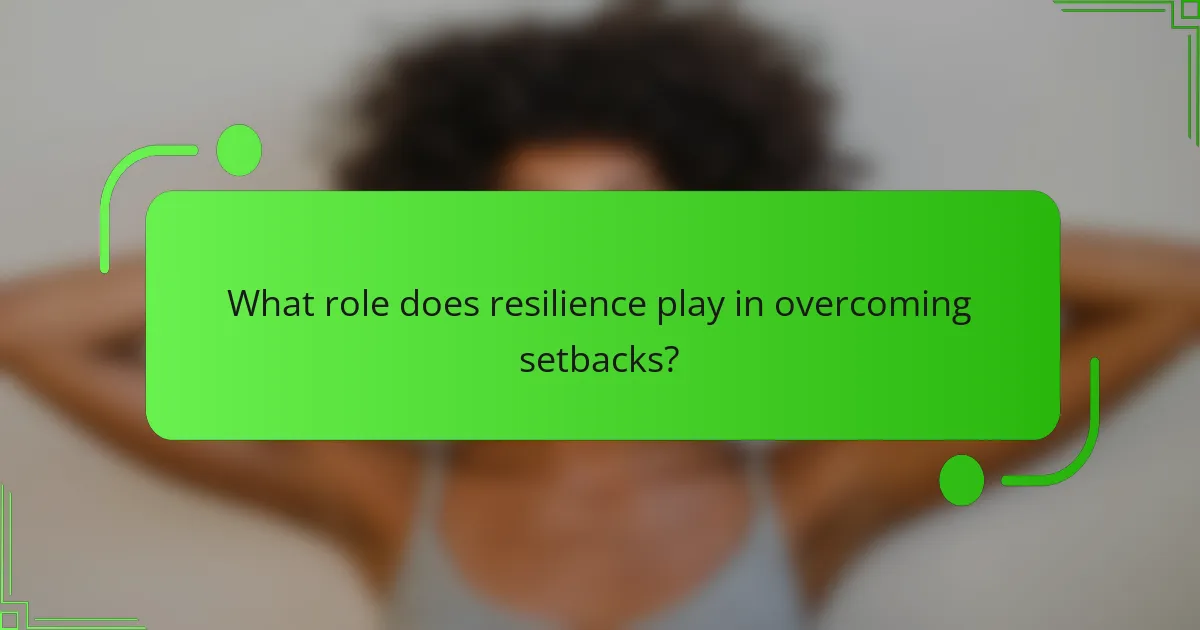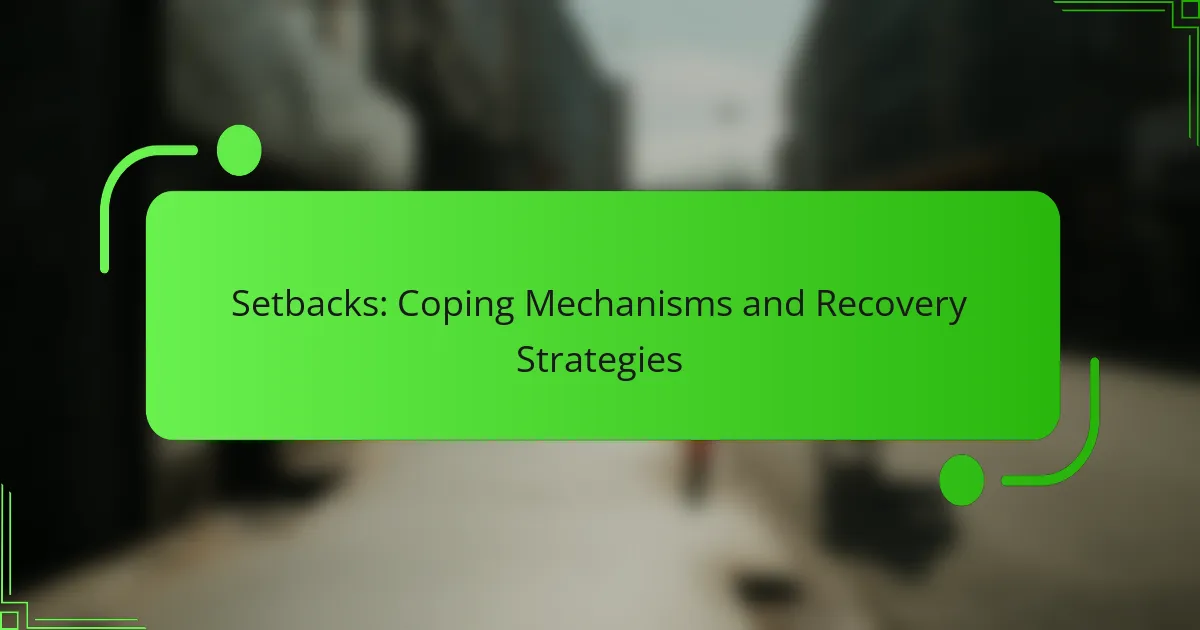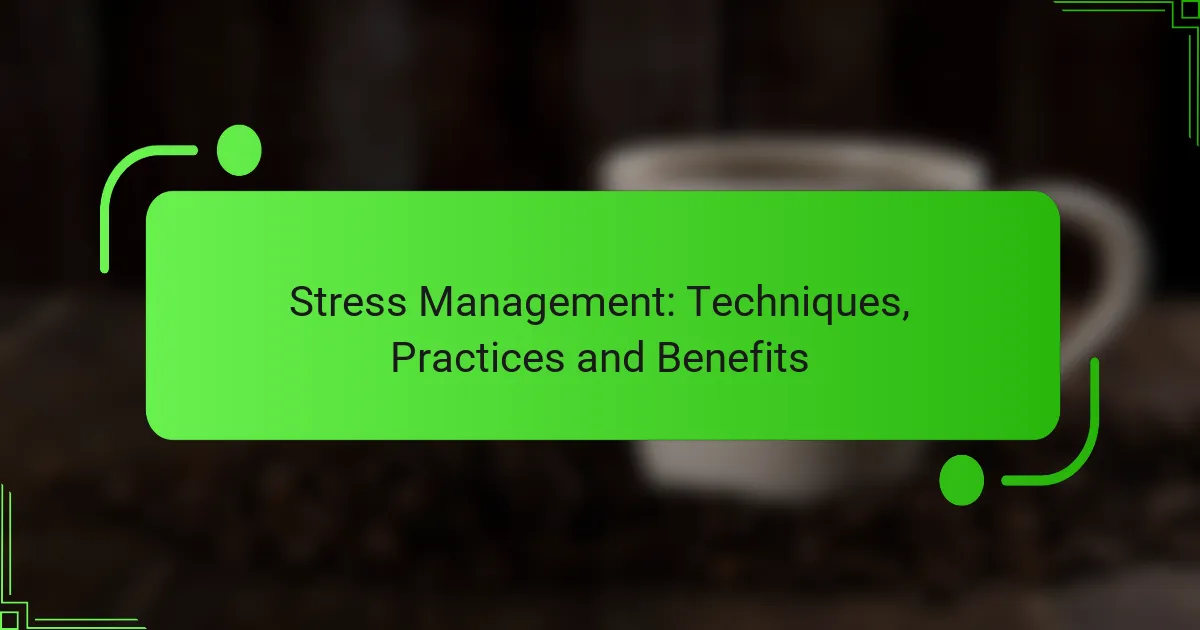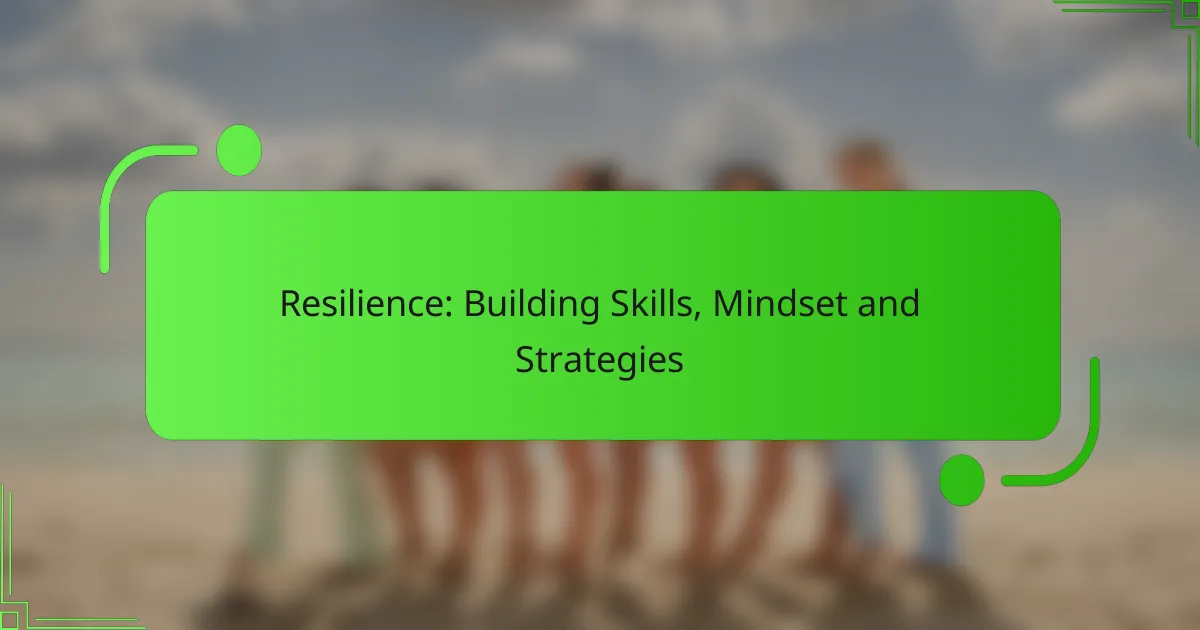Setbacks are an inevitable part of life, but how we respond to them can shape our journey toward recovery and growth. By employing effective coping mechanisms, individuals can cultivate emotional resilience and mental clarity, enabling them to manage stress and maintain a positive outlook. Acknowledging challenges and taking actionable steps are essential for regaining control and moving forward, ultimately fostering a stronger sense of well-being and success.

What coping mechanisms are effective for setbacks?
Effective coping mechanisms for setbacks include strategies that promote emotional resilience and mental clarity. These methods can help individuals manage stress, regain focus, and foster a positive outlook during challenging times.
Mindfulness meditation
Mindfulness meditation involves focusing on the present moment and accepting it without judgment. This practice can reduce anxiety and improve emotional regulation, making it easier to cope with setbacks. Starting with just a few minutes daily can yield significant benefits over time.
To practice mindfulness, find a quiet space, sit comfortably, and concentrate on your breath. If your mind wanders, gently bring your focus back to your breathing. Apps and guided sessions can provide structure for beginners.
Physical exercise
Physical exercise is a powerful tool for coping with setbacks as it releases endorphins, which enhance mood and reduce stress. Engaging in regular physical activity, such as walking, jogging, or yoga, can improve overall well-being and resilience.
Aim for at least 150 minutes of moderate exercise weekly. Incorporating activities you enjoy increases the likelihood of consistency. Even short bursts of activity can be beneficial, so consider taking breaks during your day to move around.
Journaling
Journaling allows individuals to express their thoughts and feelings, providing clarity and perspective on setbacks. Writing about experiences can help process emotions and identify patterns in behavior or thought processes.
To start journaling, set aside time each day or week to write freely about your experiences, emotions, and reflections. Consider prompts like “What did I learn from this setback?” or “How can I approach similar challenges differently in the future?”
Support groups
Support groups offer a sense of community and shared experience, which can be invaluable when coping with setbacks. Connecting with others facing similar challenges fosters understanding and provides practical advice and encouragement.
Look for local or online support groups related to your specific setback, whether it’s a personal loss, health issue, or career challenge. Engaging with others can help normalize your feelings and provide new coping strategies.
Cognitive-behavioral techniques
Cognitive-behavioral techniques focus on identifying and changing negative thought patterns that contribute to feelings of defeat. By challenging these thoughts, individuals can develop healthier perspectives and coping strategies.
Common techniques include reframing negative thoughts, practicing self-compassion, and setting realistic goals. Consider working with a therapist trained in cognitive-behavioral therapy (CBT) to learn and apply these methods effectively.

How can I recover from personal setbacks?
Recovering from personal setbacks involves acknowledging the situation, developing coping strategies, and taking actionable steps toward improvement. It’s essential to focus on practical methods that can help you regain control and move forward effectively.
Establishing a routine
Creating a daily routine can provide structure and stability during challenging times. A consistent schedule helps to minimize uncertainty and can improve your overall mental well-being.
Start by setting specific times for waking up, meals, work, and relaxation. Aim for a balance that includes physical activity, social interactions, and personal time. For example, you might allocate 30 minutes for exercise each morning and schedule time for hobbies in the evening.
Setting achievable goals
Setting realistic and achievable goals is crucial for regaining a sense of purpose after a setback. Break larger objectives into smaller, manageable tasks to avoid feeling overwhelmed.
Use the SMART criteria—Specific, Measurable, Achievable, Relevant, and Time-bound—to guide your goal-setting process. For instance, instead of aiming to “get fit,” set a goal to “walk 30 minutes three times a week for the next month.”
Seeking professional help
When personal setbacks feel insurmountable, seeking professional help can be a vital step in your recovery. Therapists, counselors, and support groups can provide guidance and strategies tailored to your specific situation.
Consider reaching out to a mental health professional if you experience prolonged feelings of sadness or anxiety. Many communities offer low-cost or sliding scale services, making it accessible to those who may be concerned about costs.

What role does resilience play in overcoming setbacks?
Resilience is crucial for overcoming setbacks as it enables individuals to recover from difficulties and adapt positively to challenges. It involves mental toughness, emotional strength, and the ability to bounce back from adversity, which can significantly influence one’s overall well-being and success.
Building emotional strength
Building emotional strength involves developing coping mechanisms that help manage stress and maintain a positive outlook. Techniques such as mindfulness, journaling, and seeking support from friends or professionals can enhance emotional resilience. Regularly practicing gratitude and focusing on personal strengths can also fortify emotional health.
Consider engaging in activities that promote self-care, such as exercise or hobbies, which can boost mood and provide a sense of accomplishment. Avoiding negative self-talk and surrounding yourself with supportive individuals can further strengthen your emotional foundation.
Adapting to change
Adapting to change is essential for resilience, as it allows individuals to navigate new circumstances effectively. Embracing flexibility and maintaining an open mindset can facilitate smoother transitions during setbacks. Identifying potential challenges and developing contingency plans can also prepare you for unexpected changes.
To enhance adaptability, practice reframing negative situations into opportunities for growth. Setting realistic goals and breaking them into manageable steps can help maintain focus and motivation during times of change. Remember to regularly assess your progress and adjust your strategies as needed to stay on track.

What are the signs of effective coping strategies?
Effective coping strategies are characterized by their ability to enhance emotional resilience and promote overall well-being. Signs include improved mood, better stress management, and a proactive approach to challenges.
Improved emotional well-being
One of the primary indicators of effective coping strategies is an enhancement in emotional well-being. Individuals may notice a reduction in anxiety and depressive symptoms, leading to a more positive outlook on life. This can manifest as increased feelings of happiness, contentment, and emotional stability.
To foster improved emotional well-being, consider engaging in activities that promote relaxation and mindfulness, such as meditation, yoga, or spending time in nature. These practices can help individuals process their emotions and reduce stress levels.
Increased motivation
Effective coping strategies often lead to increased motivation, enabling individuals to tackle challenges with a renewed sense of purpose. When coping mechanisms are working well, people are more likely to set and pursue personal goals, whether in their careers, education, or personal lives.
To enhance motivation, set achievable goals and break them down into smaller, manageable tasks. Celebrate small victories to maintain momentum and reinforce positive behavior. Avoid overwhelming yourself with unrealistic expectations, as this can lead to burnout and decreased motivation.

How can I support others facing setbacks?
Supporting others through setbacks involves being present and providing meaningful assistance. It’s crucial to listen actively and offer practical help that addresses their specific needs.
Active listening
Active listening means fully concentrating on what the person is saying without interrupting. This approach fosters trust and encourages them to express their feelings openly, which is vital during challenging times.
To practice active listening, maintain eye contact, nod to show understanding, and reflect back what you hear. Avoid formulating your response while they are speaking; instead, focus on their emotions and thoughts.
Offering practical help
Offering practical help can significantly alleviate the burden someone faces during a setback. This assistance can range from helping with daily tasks to providing resources or connections that may aid their recovery.
Consider specific ways you can assist, such as running errands, helping with childcare, or even just being there for a chat. Tailor your support to their unique situation, ensuring it aligns with their needs and preferences.

What are common misconceptions about setbacks?
Many people believe that setbacks are failures or signs of weakness, but this is not true. Setbacks are often a natural part of any journey toward success and can provide valuable learning experiences.
Setbacks are failures
A common misconception is that setbacks equate to failure. In reality, setbacks are opportunities for growth and reflection. They can help individuals reassess their goals and strategies, leading to better outcomes in the long run.
Only negative outcomes result from setbacks
Some assume that setbacks only lead to negative consequences. However, many successful individuals attribute their achievements to lessons learned from setbacks. These experiences can foster resilience and adaptability, essential traits for overcoming future challenges.
Setbacks should be avoided at all costs
While it may seem ideal to avoid setbacks, doing so can hinder personal and professional growth. Embracing setbacks as part of the process encourages a growth mindset, allowing individuals to develop new skills and insights. Instead of fearing setbacks, view them as stepping stones toward success.



